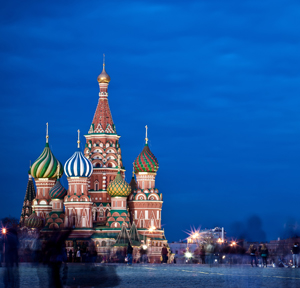Legal
US, Europe Increase Pressure On Russia With Further Sanctions

The US has increased pressure on Russia with further sanctions by blacklisting a high-profile bank and a number of individuals that form part of President Vladimir Putin's inner circle in a bid to reduce the global standoff in Ukraine.
The US has increased pressure on Russia with further sanctions by
blacklisting a high-profile bank and a number of individuals that
form part of President Vladimir Putin's inner circle in a bid to
reduce the global standoff in Ukraine.
According to a statement from the US Department of Treasury, the
new list of sanctioned officials includes 20 names and imposes
travel bans and financial restrictions on a number of Putin's
most influential supporters.
The measures have targeted a number of individuals with close
ties to Putin, including: Sergei Ivanov, the president’s chief of
staff; Russian billionaire Gennady Timchenko; Arkady Rotenberg
and Boris Rotenberg, who are linked to high-price contracts for
the Sochi Olympic Games and state-controlled Gazprom; and Yuri
Kovalchuk, the personal banker for senior officials of the
Russian Federation, including Putin.
Sanctions were also imposed on Bank Rossiya, the personal bank
for senior officials of the Russian Federation. Rossiya is
Russia's 17th largest bank with assets of approximately $10
billion, and has numerous relationships to banks in the US and
Europe, with customers in the oil, gas and energy sectors.
Following the referendum held in Crimea at the weekend in which
the vast majority of voters chose to merge the region with
Russia, the European Union punished senior Russian government
officials and other named individuals with asset freezes and
travels bans. The US also ordered similar sanctions against 11
individuals.
President Barack Obama said in a statement that the US was also
considering sanctions against key economic sectors including oil
and gas, mining and the defence industry.
“This is not our preferred outcome. These sanctions would not
only have a significant impact on the Russian economy, but could
also be disruptive to the global economy. However, Russia must
know that further escalation will only isolate it further from
the international community,” the president said.
Europe
On Friday morning, Putin formally signed a treaty completing the
procedure to absorb Crimea into the Russian Federation. Russia's
Federation Council unanimously voted to approve the treaty
earlier in the day, paving the way for Putin to sign it into
law.
Meanwhile, the EU said at a summit on Thursday that it had
extended its sanctions to include another 12 individuals,
bringing the total up to 33, and would introduce further economic
measures if the situation were to escalate. The EU said it was
also cancelling the next EU-Russia summit in June along with
other bilateral summits.
European Council President Herman Van Rompuy said failure to
settle the crisis peacefully, and any steps by Russia to
destabilise Ukraine, would have “far-reaching consequences”.
“Sanctions are not a question of retaliation; they are a foreign
policy tool. Not a goal in themselves, but a means to an end. Our
goal is to stop Russian action against Ukraine, to restore
Ukraine's sovereignty – and to achieve this we need a negotiated
solution. Europe stands ready to facilitate and engage in a
meaningful dialogue involving Ukraine and Russia and supports all
multilateral initiatives towards that aim,” he said.
In response to Russia's annexation of Crimea, EU leaders have
signed an agreement on closer relations with Ukraine to give the
country's interim leadership under prime minister Arseniy
Yatsenyuk greater economic and political support.
President of the European Commission José Manuel Barroso welcomed
the decisions made regarding the EU's support of Ukraine and said
the accord recognised “the aspirations of the people of Ukraine
to live in a country governed by values, by democracy and the
rule of law, where all citizens have a stake in national
prosperity”.
“We made very clear that we will deliver our strong and concrete
support to Ukraine. It's essential that this country becomes a
viable, stable prosperous and democratic country,” the president
said.
The European Council has asked the European Commission to
evaluate the legal consequences of the annexation of Crimea and
to propose economic, trade and financial restrictions. Barroso
explained that the commission will also prepare possible targeted
measures, “to show to Russia that some of this behaviour is
simply unacceptable”.